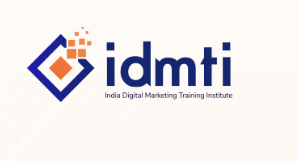In today’s fast-paced and unpredictable business environment, having a clear strategic direction isn’t just a luxury — it’s a necessity. But crafting an effective strategy is no easy feat. That’s where strategic planning facilitation comes in.
Facilitated strategic planning helps organizations create actionable, focused, and realistic plans by engaging stakeholders, fostering alignment, and bringing objectivity to the process. In this article, we’ll explore what strategic planning facilitation is, why it matters, and how your organization can benefit from a skilled facilitator.
What Is Strategic Planning Facilitation?
At its core, strategic planning facilitation is the process of guiding a team or organization through the steps of developing or refining its strategy. A facilitator — usually an experienced, impartial professional — helps leaders and stakeholders engage in productive discussions, make evidence-based decisions, and agree on shared goals and priorities.
Unlike a consultant who tells you what to do, a facilitator enables you to uncover the best solutions for your unique context. They manage the process, not the content — ensuring everyone’s voice is heard, conflict is managed constructively, and the group stays focused on outcomes.
Why Strategic Planning Is Often Challenging
Many organizations attempt to plan strategically without external help, only to face common pitfalls such as:
-
Dominant personalities taking over the conversation: Leaders or vocal team members might unintentionally silence others.
-
Lack of focus: Meetings drift into operational issues instead of long-term strategic priorities.
-
Unresolved conflicts: Differing opinions and agendas derail progress.
-
Groupthink: People agree too easily to avoid conflict, leading to uninspired or flawed plans.
-
No clear ownership: The final plan lacks commitment because stakeholders didn’t feel engaged in the process.
A facilitator helps you avoid these traps by providing structure, neutrality, and tools to keep the group focused on what really matters.
The Benefits of Strategic Planning Facilitation
Here are some of the key benefits that organizations experience when working with a strategic planning facilitator:
1. Objective Perspective
Facilitators bring a fresh, impartial perspective. They’re not entangled in internal politics or history, so they can identify blind spots, challenge assumptions, and encourage open dialogue without bias.
2. Inclusive Engagement
Facilitators ensure everyone has a voice, from senior executives to frontline staff. This inclusivity improves buy-in and surfaces valuable insights that might otherwise go unheard.
3. Efficiency and Focus
A well-designed facilitation process keeps discussions on track and ensures time is used effectively. Participants are less likely to get bogged down in operational details or personal disagreements.
4. Conflict Resolution
Facilitators are trained to handle conflict constructively. They can turn disagreements into productive discussions, helping the group explore different perspectives without derailing the process.
5. Clear, Actionable Plans
Because facilitators keep the focus on outcomes, the result is a strategy that is not only visionary but also practical, with clear goals, timelines, and accountability.
The Facilitator’s Role in Strategic Planning
A facilitator doesn’t just “run a meeting.” They design and lead a process tailored to your organization’s needs. Here’s how a facilitator typically adds value at each stage of strategic planning:
Pre-Planning
-
Meet with leadership to clarify goals for the planning process
-
Assess the current situation (e.g., through stakeholder interviews, surveys, or SWOT analysis)
-
Design an agenda and process that fits the organization’s culture and time constraints
During Planning Sessions
-
Set ground rules and establish a collaborative tone
-
Guide discussions using proven techniques (e.g., brainstorming, prioritization tools, scenario planning)
-
Keep the group focused on strategic — not operational — issues
-
Ensure balanced participation, encouraging quieter voices and managing dominant ones
-
Record key decisions and ensure clarity around next steps
Post-Planning
-
Help synthesize outcomes into a coherent, actionable plan
-
Facilitate follow-up discussions to refine or adjust the strategy
-
Provide recommendations for implementation, monitoring, and review
Common Strategic Planning Tools and Techniques
Facilitators use a variety of tools to stimulate discussion, clarify thinking, and organize ideas. Some popular ones include:
-
SWOT Analysis (Strengths, Weaknesses, Opportunities, Threats)
-
PESTEL Analysis (Political, Economic, Social, Technological, Environmental, Legal factors)
-
Visioning Exercises (imagining the desired future state)
-
Strategic Prioritization Matrices (e.g., impact vs. effort)
-
Scenario Planning (exploring possible future scenarios and how to respond)
These tools help participants move beyond abstract discussion to concrete insights and decisions.
When Should You Use a Strategic Planning Facilitator?
Not every situation calls for a facilitator — but if any of the following apply to your organization, working with one is highly recommended:
-
You have a large or diverse group of stakeholders with different priorities
-
There’s a history of conflict or distrust among participants
-
You’ve tried planning on your own before and the results were disappointing
-
The stakes are high and you need to get it right the first time
-
You want to ensure the plan reflects input from all key players, not just top leadership
Even highly cohesive, high-functioning teams benefit from facilitation because it allows all members — including the CEO — to fully participate instead of worrying about managing the meeting.
How to Choose the Right Facilitator
A good facilitator brings experience, emotional intelligence, and a well-stocked toolkit of techniques. When choosing a facilitator, consider:
-
Experience: Have they worked with organizations of your size and type?
-
Style: Do they match your organizational culture — formal or informal, structured or flexible?
-
References: Can they provide testimonials or case studies of past work?
-
Process: Do they customize their approach to fit your needs instead of using a one-size-fits-all template?
-
Skills: Look for strong communication, active listening, conflict management, and group dynamics expertise.
Making the Most of Strategic Planning Facilitation
Once you’ve decided to engage a facilitator, here are some tips to get the most from the process:
-
Be Clear on Your Objectives: Define what you want to achieve — a full strategic plan, a vision statement, a set of priorities, etc.
-
Prepare Your Team: Share pre-work, such as data, background materials, or questions to think about in advance.
-
Be Open-Minded: Encourage participants to approach the session with curiosity and a willingness to challenge assumptions.
-
Commit to Follow Through: Strategic planning is only valuable if the resulting plan is implemented and revisited regularly.
Conclusion
Strategic planning is one of the most critical activities an organization can undertake — but it’s also one of the most challenging. A skilled facilitator can help your team cut through complexity, build consensus, and develop a clear, actionable roadmap for the future.
By investing in strategic planning facilitation, you’re not just creating a plan — you’re fostering alignment, strengthening your culture, and setting your organization up for long-term success.
If you’re ready to take your strategic planning process to the next level, reach out to the experts at mx5consulting. We specialize in facilitating collaborative, results-driven planning sessions that empower your organization to thrive in an ever-changing world.




